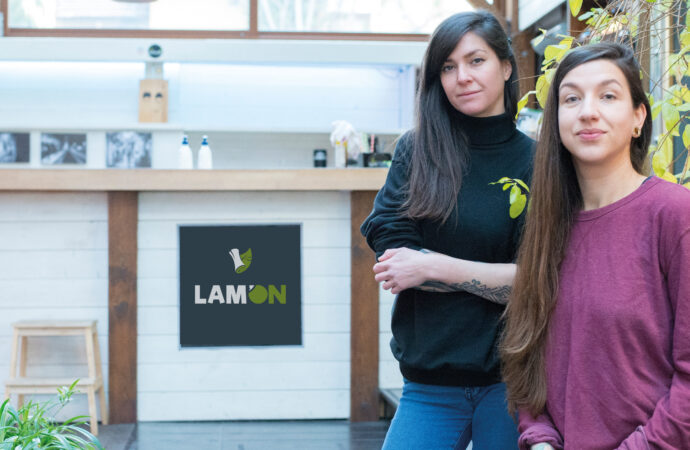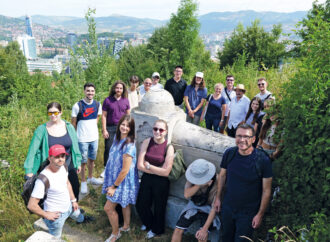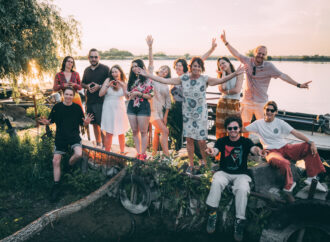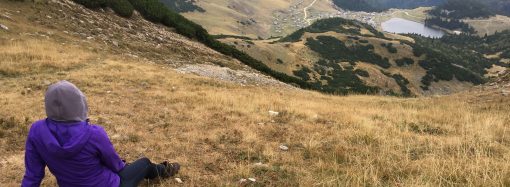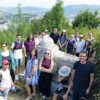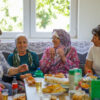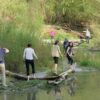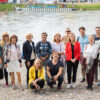May 2018. I hurry to the meeting point, car after car rushes beside me along the large boulevard in the centre of Sofia. Gergana Stancheva and Angela Ivanova are waiting for me in the park. They don’t have an office – we want to do the first interview on a bench. After a few minutes,
May 2018. I hurry to the meeting point, car after car rushes beside me along the large boulevard in the centre of Sofia. Gergana Stancheva and Angela Ivanova are waiting for me in the park. They don’t have an office – we want to do the first interview on a bench. After a few minutes, it starts to drizzle slightly – we quickly take one or two photos, pack the equipment and find a cosy café where we can finish our conversation.
Five years later, we wave to each other from our living rooms via Zoom – the founders still don’t have an office, they say with a laugh, “that’s not on our to-do list at all, rather the focus is on developing our product,” says Angela Ivanova. Back then – in Sofia – they told me about their idea for an environmentally friendly and compostable lamination for paper. Today they tell me about the first production machine, which is to be delivered in the next few days. The road so far has been long and arduous, but in April the two women and their company Lam’on finally want to start production.
Focus on the environment
Both founders have a professional background in the printing industry, and both were not happy with the conventional production methods, which use numerous harmful chemicals and polyethylene made from petroleum. Both of them knew – we have to do something to protect people and nature.
Together with scientist Philip Ublekov, they developed a recipe for an environmentally friendly and compostable lamination for paper based on a biopolymer. “This biopolymer is based on corn starch. However, it is important for us to emphasise that we are not depleting maize – an essential feed and food – but only using 0.05% of the plant to produce the lamination,” says Gergana Stancheva.
They get the resources mainly from the USA. “Before the major Russian attack, there were also concrete approaches to biopolymer production in Ukraine, but you can guess why this is not possible now.”
Little support from the own state
The process of developing the unique recipe was not easy – several trials were necessary and countless prototypes were made. They have not received support from the state: “We don’t have the conditions here to test preindustrial prototypes. There are no institutes, scientific laboratories or university centres like in Western European countries where we as young entrepreneurs could have tried out the ideas in a test environment. We had to turn to industry and find a factory that could provide us with space and equipment to do our tests. It was not easy to find these facilities to develop our product. After some time, we were able to buy a small machine and set it up in the electronics factory in Sofia, where we could run our experiments,” says Angela Ivanova.
I want to know if they haven’t thought about moving to another country. They both laugh heartily: “Maybe we’re still here because we’re just very stubborn,” says Angela Ivanova.
And yet they admit to having talked about relocation from time to time. Quite a few investors think twice before investing their money in production in Bulgaria. Although the country is developing into a reliable location, the old image has still not been shed, says Angela Ivanova.
Change is coming – from below
“Actually, we believe that things will get better here. The young people have ideas, want to make a difference. Change is coming – slowly but surely. Not from above, not from politics, which should actually facilitate the framework conditions for such green ideas, but from below, from the young generation that wants to live in a more environmentally friendly way,” both founders are sure.
Not only in politics, but also in the media, environmental issues only take place on the sidelines. Environmental issues are rarely discussed on television. “But when waste is burned in power plants and people have to wipe a layer of soot off their car windows first thing in the morning, then they understand what reality they are living in,” says Angela Ivanova.
According to her, there already is an awareness of environmental issues, but many people in Bulgaria have other everyday concerns on their minds. “Living in an environmentally conscious way, separating waste, eating less meat – these things have to be communicated to the people here more carefully, and not in a patronising way, otherwise you will achieve exactly the opposite, and then everyone will say, leave me alone with this stuff. But the green ideas and solutions – also those in everyday life – will come, and they will come from the younger generation, which is much more sensitive to them,” thinks Angela Ivanova.
That’s why they also see their future in Bulgaria: “We see potential here and want to be part of the development of this country. We want to be proof that green technologies and green products can be developed and produced here. We want to be a role model for others,” says Gergana Stancheva.
Team Lam’on is the first to develop and successfully test this new environmentally friendly lamination technology.
They are currently also developing a packaging material that can dissolve in cool water. “Since the Corona pandemic, everyone is ordering online, mountains of boxes are piling up in every household – and no end in sight. That’s why we’ve been looking for solutions to develop degradable packaging. One of our products – pack’on ocean – can dissolve even at a low temperature of 10 degrees – in ocean water. The other products are degradable in the soil or can be recycled.”
They already have a patent for the formula in Bulgaria and have filed an application to the European Patent Office, which they plan to defend next year.
Investors are also convinced by the idea – they won several grants, are part of the funding programmes of the European Institute of Innovation and Technology (EIT), as well as the European Innovation Council (EIC). Thanks to this financial support, they have already found a production site in Sofia – 1500 square metres with plenty of space for a laboratory to develop further innovative products.
The two founders are optimistic that they will soon be able to offer their products not only in Bulgaria, but also on the European market and beyond. However, they have one wish: “We have to spend a lot of money to certify our environmentally friendly products, but the manufacturers who pollute the environment with their plastic products don’t have to pay anything. When will there be a certificate for all those who are responsible for polluting the environment? Who pays the price for nature?”
Rayna Breuer,
Bonn


